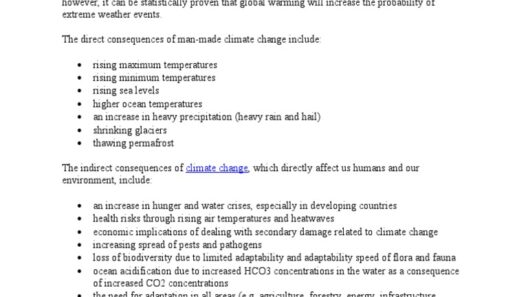Global warming, perhaps one of the most pressing crises of our time, is an existential threat demanding immediate action. The rising temperatures, melting polar ice, and increasingly erratic weather patterns serve as irrefutable evidence of climate change’s detrimental impact. While it can feel overwhelming, individual actions can collectively catalyze meaningful change. Every effort counts. Here, we present a compendium of actionable steps that one can take to combat this global menace.
Innovation and lifestyle alterations can significantly contribute to curbing greenhouse gas emissions. From simple daily choices to large-scale initiatives, the potential for positive change resides within each person.
Understanding the Root Causes of Global Warming
Before embarking on the journey to mitigate global warming, it is vital to comprehend its underlying causes. The proliferation of fossil fuels, deforestation, and industrial agriculture are seminal contributors. Fossil fuel combustion produces copious amounts of carbon dioxide (CO2), a gas that traps heat in our atmosphere. Deforestation exacerbates this problem by reducing the number of trees that can absorb CO2. Furthermore, agricultural practices—ranging from cattle farming, which emits methane, to inefficient land use—compound these effects.
By understanding these causes, individuals can better position themselves to combat global warming by targeting practices that contribute to these harmful emissions.
Reducing Your Carbon Footprint
Everyday activities contribute to our carbon footprints, but increasing awareness allows us to make more sustainable choices. Begin by reassessing your energy consumption practices. Opt for energy-efficient appliances and consider upgrading to renewable energy sources, such as solar panels or wind turbines. These initiatives not only reduce emissions but also save on energy bills in the long run.
Transportation also plays a monumental role in carbon emissions. Embrace public transport, carpooling, or cycling whenever feasible. Each small decision to minimize personal vehicle use contributes to fewer greenhouse gases entering the atmosphere. If you must drive, explore electric vehicles (EVs) as an alternative. They are becoming increasingly accessible and often come with incentives that ease the financial burden of purchasing an environmentally friendly car.
Conserving energy at home is equally paramount. Simple practices like turning off lights when not in use, employing energy-efficient light bulbs, and insulating your home can lead to significant energy savings. Additionally, consider advocating for or participating in community-based renewable energy initiatives. Engaging in local solution-based discussions builds a grassroot movement against the climate crisis, urging policymakers to take action.
Sustainable Consumption: Mindful Choices Matter
Your purchases matter. The products you buy often reflect the environmental practices of their manufacturing processes. Be vigilant about supporting sustainable brands that prioritize eco-friendly materials and ethical production methods. Consider the concept of a circular economy, where products are designed to minimize waste through recycling and upcycling. Whenever possible, choose products with minimal packaging and avoid single-use plastics.
Food consumption is another arena ripe for change. The adage “you are what you eat” takes on new meaning in the context of climate change. The livestock industry has a significant carbon footprint due to methane production and land cleared for pasture. Transitioning to a plant-based diet, or at the very least incorporating more meat-free days into your weekly routine, can substantially lower your carbon footprint. Furthermore, sourcing food locally helps to reduce the emissions associated with transportation.
Moreover, alter your food storage practices by embracing techniques like canning, freezing, and fermenting. Reducing food waste not only saves money but directly impacts your carbon footprint. Be mindful of purchasing only what you can consume to mitigate waste generation.
Advocacy and Community Engagement: Join the Fight
Individual actions are amplified when they coincide with collective endeavors. Engaging with community organizations dedicated to environmental stewardship or participating in local clean-up events can foster a sense of camaraderie while driving home the importance of individual efforts.
Moreover, advocacy at a policy level is crucial. Stay informed about local, national, and global environmental policies affecting climate change. Encourage policymakers to prioritize climate actions through elections, petitions, and public forums. Engage in discourse with friends and family, advocating for the urgency of climate action. Change begins with awareness, and you can be the catalyst in your social circles.
Additionally, social media serves as a potent tool for awareness. Use it to promote environmental organizations and share impactful studies and policies that support sustainable practices. By fostering a dialogue about climate issues, you embark on shaping public opinion and further fortifying the movement against global warming.
Encouraging Youth Involvement: The Next Generation’s Role
The youth today will inherit the consequences of our actions. It is imperative to involve younger generations in climate conversations. Schools and community centers can implement programs focused on environmental education, helping them understand the intricacies of climate change while advocating for creative solutions. Encourage them to participate in environmental clubs, movements like Fridays For Future, or initiatives that plant trees or conserve local ecosystems.
Furthermore, this involvement ignites hope and empowers the next generation to envision a sustainable future. Fostering creativity among the youth will inspire out-of-the-box thinking, prompting new solutions to age-old problems.
Conclusion: Every Action Counts
To combat global warming, the burden of change lies not only on governments or corporations but also on each of us as individuals. The path towards a healthier planet begins with awareness and culminates in decisive action. Whether it’s re-evaluating your daily choices, engaging in sustainable practices, or advocating for systemic change, you possess the power to drive progress. The small steps you take today can create ripples that promote widespread change. Together, let us weave a tapestry of action that nurtures the Earth for generations to come.





